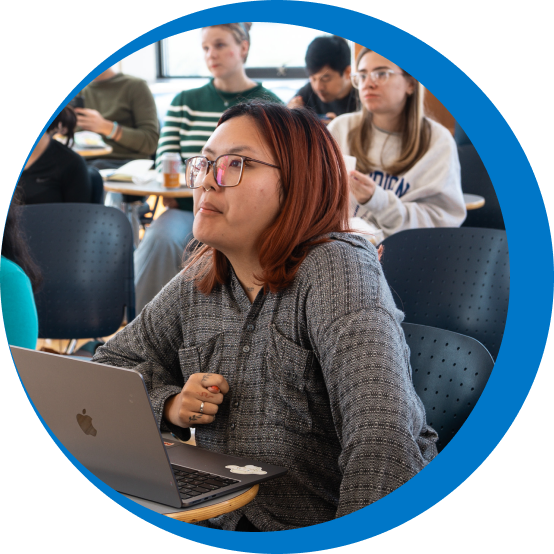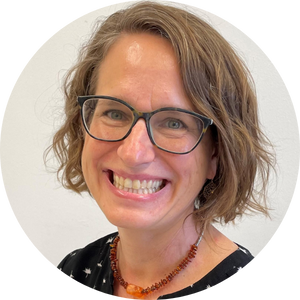Chapter 5
Population and Family Health
Population and Family Health (PopFam) is dedicated to advancing health and well-being through innovative research, transformative education, and meaningful engagement with communities and policymakers. This work is driven by a commitment to human rights, equity, and social justice. PopFam combines theoretical understanding of the complex factors that affect local and global health with skills-based training that prepares students for roles as researchers, practitioners, policy advocates, evaluators, and leaders in their field.
Table of Contents


Population Health Careers Outlook
Population and Family Health professionals can pursue careers such as:
- Monitoring, Evaluation and Learning Advisor: Designs and oversees systems to track public health program performance, measure impact, and generate evidence-based insights that improve the effectiveness and accountability of health interventions.
- Public Health Specialist: Works to improve the health outcomes of communities through education, advocacy and program development at local, national, or global levels.
- Sexual and Reproductive Health Specialist: Leads programs, research, and advocacy efforts to expand access to health services such as contraception, safe abortion, maternal care, and comprehensive sexuality education.
- Health Communication Specialist: Designs and implements strategic communication campaigns that translate public health information into clear, engaging messages to inform, influence, and improve health behaviors and outcomes.
- Public Health Data Analyst: Manages quantitative and qualitative health data to identify trends, evaluate programs, and generate evidence that informs policy and public health decision-making.
PopFam graduates are consistently employed by nonprofits and non-governmental organizations, at universities and research institutions, in many levels of government, and at hospitals and healthcare centers.
Population and Family Health Master’s Degrees at Columbia
The Columbia University Mailman School of Public Health offers two paths to an advanced degree in Population and Family Health: the MPH and MS programs. Both programs equip students to confront urgent population challenges and harness emerging global trends to build solutions that advance health, equity, and well-being.
The MPH in Population and Family Health is designed to provide a skills-based public health education with a focus on complex issues that affect local and global health. Students gain expertise in data collection and analysis, program planning and implementation, evaluation research, and human rights advocacy. The program draws upon PopFam’s strength in integrated research and practice, including core courses, specialized training, and opportunities for hands-on experience through an Applied Practice Experience and Capstone paper. The MPH program can be completed in 2 years full-time, as a dual degree, or in an accelerated one-year format for candidates who meet certain requirements. Columbia also offers 4+1 MPH programs with specific undergraduate institutions.
The MS in Population and Family Health is intended for individuals seeking advanced training in the field with an emphasis on integrated research and practice and specialized content areas. Students are required to complete a core set of courses, and select coursework on their in their selected concentration area, such as: sexual and reproductive health and rights; child, youth and family health; maternal and child health; health and human rights; public health and humanitarian action; implementation science; or complex health systems. The MS program is tailored to the training needs of individual students and is designed to be completed full-time in 9 months or part-time over 2-3 years.
Student Perspective
Shaila Tieken, MS ‘23
Shaila Tieken is a Senior Research Associate at PUSKAPA, the Center on Child Protection and Wellbeing at Universitas Indonesia. Shaila leads research and advocacy that amplifies children’s voices and promotes institutional accountability, challenging institutional silos to address the complex, intersecting forces shaping children’s health and well-being. Shaila’s work has directly informed national policy—driving reforms in Indonesia’s juvenile justice system and strengthening the country’s child rights monitoring framework. Shaila’s work reflects how PopFam’s MS program equips students to conduct rigorous public health research that tackles real-world inequities.
%20copy.png)

Cari Olson, MPH ‘04
Cari Olson is an Assistant Commissioner at the NYC Department of Health and Mental Hygiene. Cari’s work focuses on environmental health, climate health policy and applied data. Cari played an integral role in implementing the Get Cool NYC program, which aimed to reduce inequities during the COVID-19 pandemic and periods of extreme heat. Cari expanded program outreach through partnerships with local community- and faith-based organizations, reflecting PopFam’s MPH program emphasis on engaging communities as partners in developing effective public health solutions.